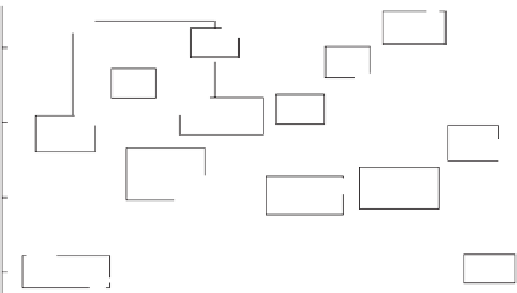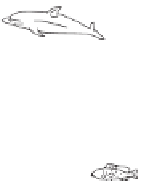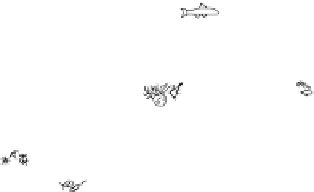Environmental Engineering Reference
In-Depth Information
Marine
mammals
Tuna,
bill
sh
4
Large
squids
Misc.
sh
Small
squids
3
Mesopelagics
Small
pelagics
Benthic
sh
Large
zooplankton
Benthic
invertebrates
Small
zooplankton
2
Detritus
1
Phytoplankton
Figure 1.1 Marine food web showing different trophic levels (from Wikimedia)
are consumed by various animals, but mostly after they have
died and decayed into detritus (Figure 1.1).
Why is there concern about the state of the oceans?
For centuries, it was thought that the oceans were so vast
that nothing people could do could possibly have an impact
on them. However, contrary to this belief, it turns out that
we have been doing so for many years. Back in 1951, Rachel
Carson wrote in
The Sea Around Us
that people could not
change the ocean the way we have plundered the continents,
but she subsequently changed her opinion. We are now
aware that many fish populations are declining from over-
fishing, that warming is melting the polar ice and raising
sea levels, and that portions of the ocean are full of trash—
plastic bottles and bags, balloons, and lost fishing nets. We
have witnessed disastrous oil spills. We find abnormalities
in marine animals due to subtle effects of man-made chemi-
cals and find large coastal areas with water devoid of oxygen,
and therefore of marine life, due to wastes released into the
waters.

















































Search WWH ::

Custom Search